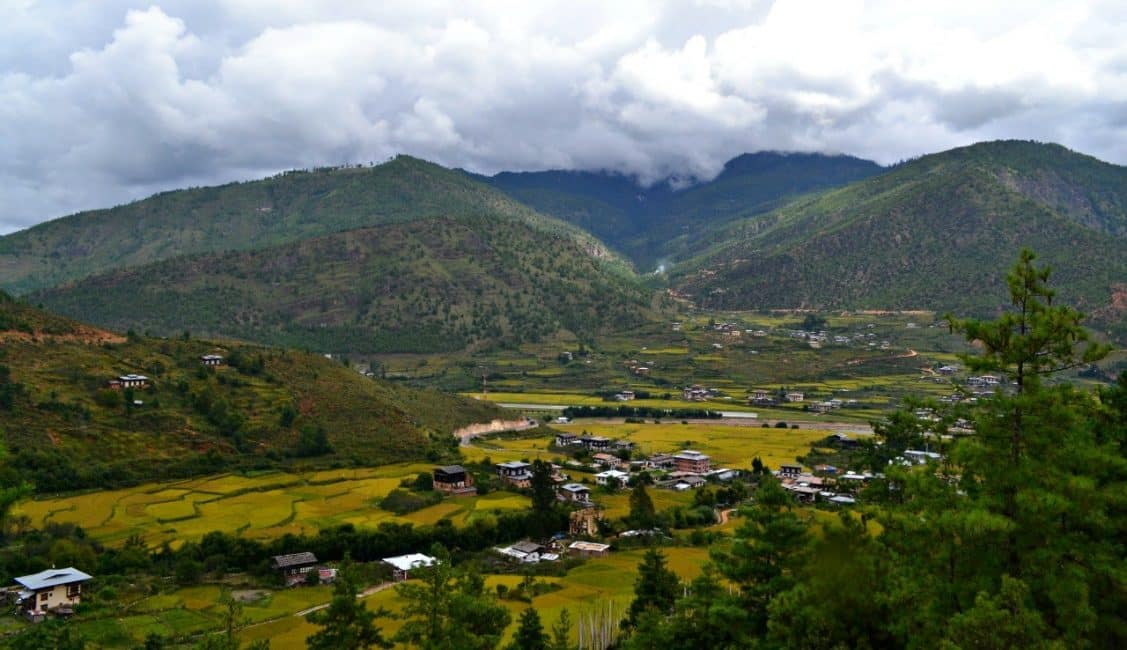Summary
Why Travel to Bhutan
As I started traveling more frequently, I felt compelled to explore destinations beyond my home country India. Consequently, I decided to venture into Bhutan for the following reasons:
- No visa is required for citizens of India, Maldives, and Bangladesh, who are permitted for independent travel.
- It was easier to convince my parents about my solo adventure.
- Bhutan offers an affordable travel experience.
The stunning beauty of Bhutan showcased in online pictures had undoubtedly captivated my soul, further encouraging my travel plans.
Thimpu & Paro
I embarked on a solo trip to Bhutan for approximately 2.5 weeks, initially arriving by road at the border town of Phuentsholing. After obtaining the necessary permit for Paro and Thimpu, my journey began in Paro. Following a public bus ride for part of the distance, I hitchhiked at night with a couple who graciously picked me up.
Tiger’s Nest Monastery
The following day, I marveled at the breathtaking landscape around me. Majestic mountains towered overhead, their peaks shrouded in clouds while a river meandered gracefully by my guesthouse. After a chilly morning stroll, I commenced my trek to the iconic Tiger’s Nest monastery, a significant symbol of Bhutanese pride.
The climb was somewhat strenuous, yet the panoramic views of the town from above made it well worth the effort. During my stay in Paro, I took the opportunity to visit various attractions, enjoy local cuisine filled with spicy chilies, embark on long evening walks, and indulge in reading and writing.
The Capital City of Bhutan: Thimpu
My next destination was Thimpu, a capital city that seamlessly blends modern and traditional Bhutanese life. Interestingly, Thimpu is the only capital city in the world without traffic signals, with traffic police managing flow through hand signals. Exploring Thimpu was a delightful experience, offering a unique glimpse into the country’s culture.
Travel to Central Bhutan
After securing an extended permit in Thimpu, I began my journey into Central Bhutan. To save time, I hired a taxi, which provided an opportunity to learn interesting stories about Bhutan’s culture and politics from my driver.
Chelela Pass
My first destination was Chelela Pass, renowned as the highest motorable road in Bhutan. The breathtaking views at over 3,500 meters elevation were awe-inspiring. Following that, I visited Dochula Pass, which features a shrine honoring Bhutanese soldiers and offers a view of the majestic Himalayan range.
The Former Capital of Punakha
Continuing my journey, I reached Punakha, the former capital, where the Ma Chu and Po Chu rivers meet. This quaint town proved to be an ideal spot for a relaxing holiday. I then ventured to Phobjikha or Gangtey, hiking through the scenic valleys while enjoying a homestay experience. My travels then took me to Bumthang, one of the most picturesque towns in Bhutan, where I immersed myself in nature and savored warm tea on chilly nights.
Returning home from Bhutan, I felt rejuvenated and enriched with memorable experiences. This solo journey not only pushed me out of my comfort zone but also highlighted the importance of happiness, as I discovered the optimistic nature of the Bhutanese people. Trying new cuisines and experiences offered a refreshing perspective on life.
How to Plan to Travel to Bhutan
Practical Guide for Your Bhutanese Adventure
Visa & Costs for Travel to Bhutan
As mentioned, while nationals from India, Maldives, and Bangladesh do not require a visa, other travelers must obtain one through a recognized tour operator, with a cost of 40 US dollars. To avoid scams, it’s advisable to choose a tour operator listed on Bhutan’s official tourism website.
Travelers need to book their journey under a ‘minimum daily package’ that mandates hiring a guide and booking into a tour. This package includes a minimum of 3-star accommodation, meals, a licensed Bhutanese tour guide, internal transportation, and camping equipment for trekking tours. Additionally, a sustainable tourism royalty of $65 is included, which funds education, healthcare, and infrastructure.
The minimum daily package pricing varies based on group size and season:
- USD $200 per person per night (January, February, June, July, August, December).
- USD $250 per person per night (March, April, May, September, October, November).
Reaching Thimpu: While there are flights from major world cities to Thimpu, direct flights tend to be costly. Therefore, flying from India or neighboring countries is often the most economical option.
Indians can also drive into Bhutan, for which I have detailed the process of obtaining a permit on my blog.
Traveling in Bhutan: If independent travel is permissible, be aware that connectivity becomes limited outside Paro, Thimpu, Punakha, and Haa Valley. Public transportation is not widespread, and bus journeys can take between 10 to 12 hours. For group travel, it is best to hire cabs, ensuring to negotiate a price in advance.
Ideal Itinerary:
While I prefer flexible itineraries, here’s a common route favored by travelers:
5 days to 1 week: Focus on western Bhutan, where areas are closely connected, allowing you to cover Paro, Punakha, Thimpu, and Haa Valley comfortably within a week.
8 to 15 days: In addition to the western highlights mentioned, a thorough exploration of Central Bhutan could take up to 15 days, particularly for Bumthang, renowned for its beauty.
In total, dedicating 12 to 14 days is ideal for an extensive and comfortable exploration of Bhutan.
Weather:
Bhutan is often blanketed in snow from late December to March. April heralds the blooming of flowers, notably rhododendrons. For a cultural immersion enriched by local festivals, traveling between September and December is recommended for optimal weather.
Food:
The local cuisine is delicious yet spicy, worth trying at least once. For those calorie-conscious, be mindful of the cheese usage. Western and Indian food options are available in most restaurants, and Thimpu and Paro boast quality cafes.
Reshma Narasing, a solo female traveler and travel blogger from India, seeks unique travel experiences through local interactions and offbeat exploration. Her travel stories can be found on her blog The Solo Globetrotter.




